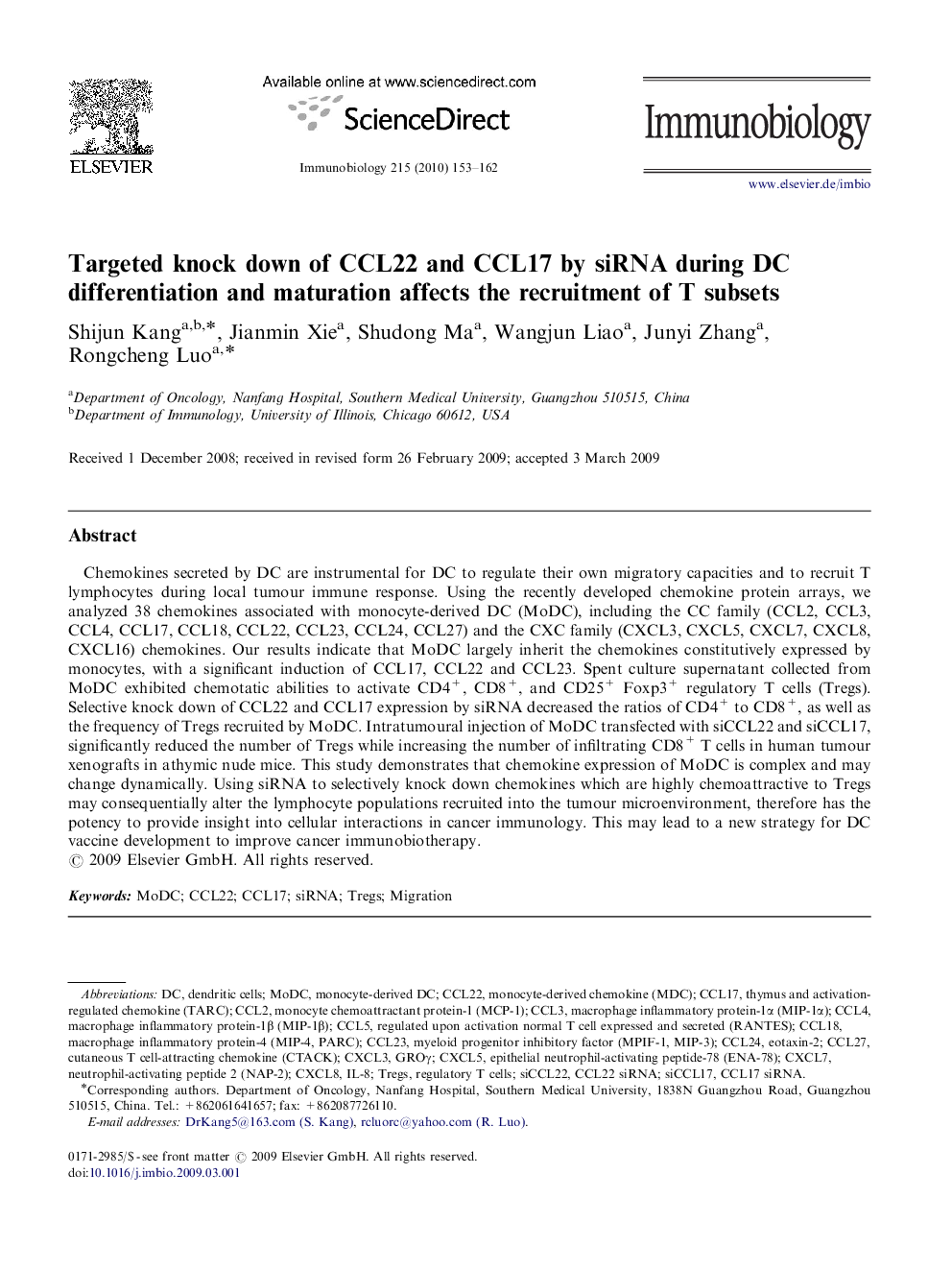| Article ID | Journal | Published Year | Pages | File Type |
|---|---|---|---|---|
| 2184096 | Immunobiology | 2010 | 10 Pages |
Chemokines secreted by DC are instrumental for DC to regulate their own migratory capacities and to recruit T lymphocytes during local tumour immune response. Using the recently developed chemokine protein arrays, we analyzed 38 chemokines associated with monocyte-derived DC (MoDC), including the CC family (CCL2, CCL3, CCL4, CCL17, CCL18, CCL22, CCL23, CCL24, CCL27) and the CXC family (CXCL3, CXCL5, CXCL7, CXCL8, CXCL16) chemokines. Our results indicate that MoDC largely inherit the chemokines constitutively expressed by monocytes, with a significant induction of CCL17, CCL22 and CCL23. Spent culture supernatant collected from MoDC exhibited chemotatic abilities to activate CD4+, CD8+, and CD25+ Foxp3+ regulatory T cells (Tregs). Selective knock down of CCL22 and CCL17 expression by siRNA decreased the ratios of CD4+ to CD8+, as well as the frequency of Tregs recruited by MoDC. Intratumoural injection of MoDC transfected with siCCL22 and siCCL17, significantly reduced the number of Tregs while increasing the number of infiltrating CD8+ T cells in human tumour xenografts in athymic nude mice. This study demonstrates that chemokine expression of MoDC is complex and may change dynamically. Using siRNA to selectively knock down chemokines which are highly chemoattractive to Tregs may consequentially alter the lymphocyte populations recruited into the tumour microenvironment, therefore has the potency to provide insight into cellular interactions in cancer immunology. This may lead to a new strategy for DC vaccine development to improve cancer immunobiotherapy.
